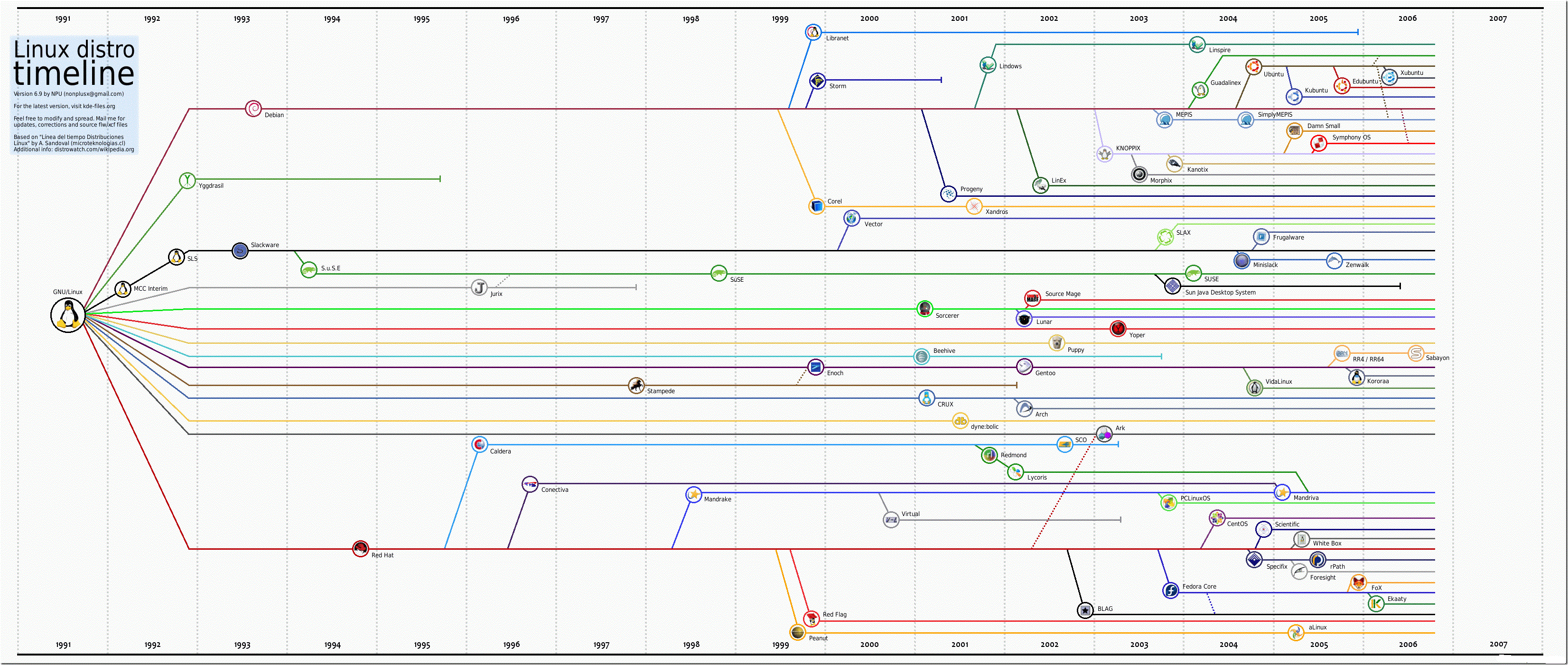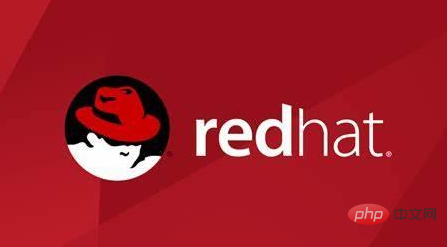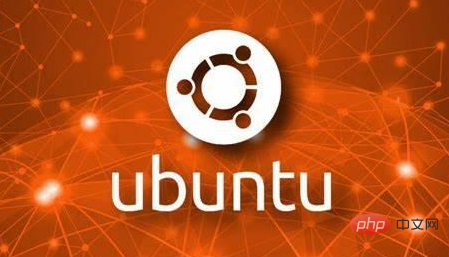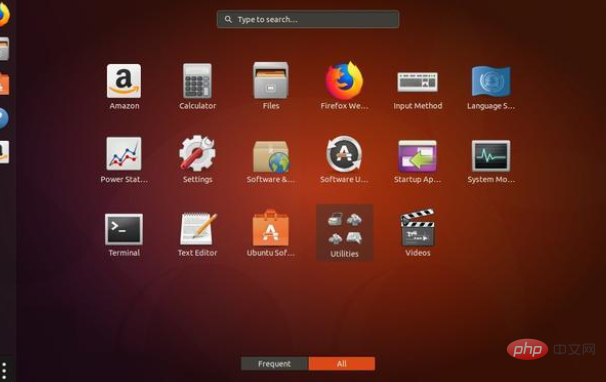 Operation and Maintenance
Operation and Maintenance
 Linux Operation and Maintenance
Linux Operation and Maintenance
 What is the difference between linux kernel and linux system
What is the difference between linux kernel and linux system
What is the difference between linux kernel and linux system
The difference between the linux kernel and the linux system: 1. The linux operating system contains the linux kernel, which is an extension of the linux kernel. The linux kernel only provides core programs for hardware abstraction layer, hard disk and file system control. ; 2. The Linux system will add user interface and various software support on the basis of the kernel, while the Linux kernel does not have user interface and software support.

#The operating environment of this tutorial: linux7.3 system, Dell G3 computer.
What to do if ifconfig cannot be found in Linux
The Linux operating system includes the Linux kernel. The linux operating system extends the linux kernel and installs some development packages and common tools. For example, ubuntu and centos may use the same version of the Linux kernel, but they provide different tools and commands for the Linux kernel, such as management tools. Ubuntu uses apt-get and centos uses yum. In other words, the Linux kernel plus some supporting system commands constitute a Linux operating system.
linux kernel:
Linux kernel refers to a system core maintained by Linus Torvalds that provides hardware abstraction layer, hard disk and file system control and multi-tasking functions program.
linux system:
Linux distribution is a collection of Linux kernel and various commonly used software products. Today, there are hundreds of Linux distributions in the world. According to Different standards can classify Linux distributions of different natures. For example, one classification method is based on whether it is maintained by a community or a commercial company. There are three main branches of Linux distributions: Debian, Slackware, and Redhat.
Difference
1. The Linux core only has the kernel part. After installation, there is no user interface/software. The kernel is the heart of the system and the most basic code in Linux.
2. Linux distribution is based on the kernel, adding user interface and support for various software. Such as CenterOS, Little Red Riding Hood, etc. On the basis of the kernel, different applications are developed to form a complete operating system.
Back to the topic, you will know the difference between learning the Linux kernel and learning the Linux operating system. Learning the Linux kernel inevitably involves learning its file system types, system calls, processes, memory, process scheduling, network models, etc. Knowledge, while learning the Linux operating system, focuses on learning its specific version, such as ubuntu, how to configure the source of apt-get, how to manage system services, the above database, how to install and use the shared file system, and how to use the above development environment Configuration, such as cuda, golang, scala or others, how to configure the environment to brighten, and how to write basic shell scripts.
Extended knowledge:
Linux operating system and various distributions
We briefly introduced the Linux operating system earlier , kernel and distribution. For the Linux operating system, it itself is a whole, including the Linux kernel, system libraries and system programs. The Linux kernel is its most basic part. It implements the management of hardware resources and provides universal functions for using these hardware resources. interface.
Since the release of the LInux kernel in 1991, many companies have joined in and built their own operating system versions based on the kernel, such as Redhat, Debian and Suse, etc. Figure 2 shows the evolution of Linux distributions from 1991 to 2007 (for high-resolution pictures, please send a private message to linuxtl). It can be seen that by 2007 there were no less than 20 releases.

#There are many Linux distributions. The following is a brief introduction to the more popular distributions.
Redhat Distribution
Red Hat Linux is a Linux distribution released by Red Hat. Red Hat Linux can be regarded as a "middle-aged" Linux distribution package. Its 1.0 version was released on November 3, 1994. Red Hat Linux should be the most widely used operating system in the industry. Many other distributions are based on this distribution, such as CentOS and Oracle Linux.

CentOS Distribution
CentOS Distribution is an open source version of Red Hat LInux. It is compiled from source code released by Red Hat Linux in accordance with open source regulations. Since Red Hat Linux itself is a commercial operating system, many companies have many inconveniences in using it, so these companies have moved to CentOS.

Operating system distributions such as Red Hat and CentOS are mainly used in enterprise services, and more are used in server-side businesses, such as Web services and cloud computing.
Ubuntu Distribution
Ubuntu was originally a desktop distribution based on Dibian. Ubuntu can basically replace Windows for daily office work, because its distribution contains all the software commonly used for daily office work, such as email clients, open source Office suites, and other tools we can think of. And these tools are free.

The following is a desktop screenshot of the Ubuntu desktop version. It can be seen that it is very similar to Windows or MacOS, and the aesthetics are also very good.

#Ubuntu is developing rapidly. In addition to the desktop version, there are also other versions such as service version and cloud computing version, covering almost all application fields.
Recommended learning: Linux video tutorial
The above is the detailed content of What is the difference between linux kernel and linux system. For more information, please follow other related articles on the PHP Chinese website!

Hot AI Tools

Undresser.AI Undress
AI-powered app for creating realistic nude photos

AI Clothes Remover
Online AI tool for removing clothes from photos.

Undress AI Tool
Undress images for free

Clothoff.io
AI clothes remover

Video Face Swap
Swap faces in any video effortlessly with our completely free AI face swap tool!

Hot Article

Hot Tools

Notepad++7.3.1
Easy-to-use and free code editor

SublimeText3 Chinese version
Chinese version, very easy to use

Zend Studio 13.0.1
Powerful PHP integrated development environment

Dreamweaver CS6
Visual web development tools

SublimeText3 Mac version
God-level code editing software (SublimeText3)

Hot Topics
 What computer configuration is required for vscode
Apr 15, 2025 pm 09:48 PM
What computer configuration is required for vscode
Apr 15, 2025 pm 09:48 PM
VS Code system requirements: Operating system: Windows 10 and above, macOS 10.12 and above, Linux distribution processor: minimum 1.6 GHz, recommended 2.0 GHz and above memory: minimum 512 MB, recommended 4 GB and above storage space: minimum 250 MB, recommended 1 GB and above other requirements: stable network connection, Xorg/Wayland (Linux)
 Linux Architecture: Unveiling the 5 Basic Components
Apr 20, 2025 am 12:04 AM
Linux Architecture: Unveiling the 5 Basic Components
Apr 20, 2025 am 12:04 AM
The five basic components of the Linux system are: 1. Kernel, 2. System library, 3. System utilities, 4. Graphical user interface, 5. Applications. The kernel manages hardware resources, the system library provides precompiled functions, system utilities are used for system management, the GUI provides visual interaction, and applications use these components to implement functions.
 vscode terminal usage tutorial
Apr 15, 2025 pm 10:09 PM
vscode terminal usage tutorial
Apr 15, 2025 pm 10:09 PM
vscode built-in terminal is a development tool that allows running commands and scripts within the editor to simplify the development process. How to use vscode terminal: Open the terminal with the shortcut key (Ctrl/Cmd). Enter a command or run the script. Use hotkeys (such as Ctrl L to clear the terminal). Change the working directory (such as the cd command). Advanced features include debug mode, automatic code snippet completion, and interactive command history.
 How to check the warehouse address of git
Apr 17, 2025 pm 01:54 PM
How to check the warehouse address of git
Apr 17, 2025 pm 01:54 PM
To view the Git repository address, perform the following steps: 1. Open the command line and navigate to the repository directory; 2. Run the "git remote -v" command; 3. View the repository name in the output and its corresponding address.
 How to run java code in notepad
Apr 16, 2025 pm 07:39 PM
How to run java code in notepad
Apr 16, 2025 pm 07:39 PM
Although Notepad cannot run Java code directly, it can be achieved by using other tools: using the command line compiler (javac) to generate a bytecode file (filename.class). Use the Java interpreter (java) to interpret bytecode, execute the code, and output the result.
 Where to write code in vscode
Apr 15, 2025 pm 09:54 PM
Where to write code in vscode
Apr 15, 2025 pm 09:54 PM
Writing code in Visual Studio Code (VSCode) is simple and easy to use. Just install VSCode, create a project, select a language, create a file, write code, save and run it. The advantages of VSCode include cross-platform, free and open source, powerful features, rich extensions, and lightweight and fast.
 What is the main purpose of Linux?
Apr 16, 2025 am 12:19 AM
What is the main purpose of Linux?
Apr 16, 2025 am 12:19 AM
The main uses of Linux include: 1. Server operating system, 2. Embedded system, 3. Desktop operating system, 4. Development and testing environment. Linux excels in these areas, providing stability, security and efficient development tools.
 vscode terminal command cannot be used
Apr 15, 2025 pm 10:03 PM
vscode terminal command cannot be used
Apr 15, 2025 pm 10:03 PM
Causes and solutions for the VS Code terminal commands not available: The necessary tools are not installed (Windows: WSL; macOS: Xcode command line tools) Path configuration is wrong (add executable files to PATH environment variables) Permission issues (run VS Code as administrator) Firewall or proxy restrictions (check settings, unrestrictions) Terminal settings are incorrect (enable use of external terminals) VS Code installation is corrupt (reinstall or update) Terminal configuration is incompatible (try different terminal types or commands) Specific environment variables are missing (set necessary environment variables)





